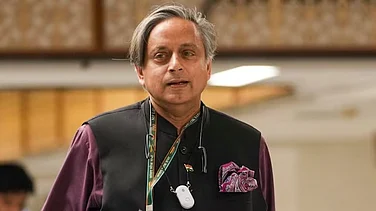In a move that could have significant implications for parliamentary oversight and continuity in legislative functioning, the Centre is reportedly considering extending the tenure of Parliamentary standing committees by up to two years. If finalized, this decision would not only strengthen the role of these panels in scrutinizing government policies but also come as a boost for prominent parliamentarians such as Shashi Tharoor, who currently chairs one of the most influential committees.
The Role of Parliamentary Panels
Parliamentary standing committees are integral to India’s legislative process. They act as forums for in-depth discussions on policies, bills, and government performance, often going beyond the partisanship of the main House. With the authority to call experts, study reports, and summon officials, these committees serve as watchdogs that enhance accountability and transparency in governance.
Traditionally, the committees are reconstituted annually, but discussions about extending their tenure have been underway for some time. Advocates argue that a longer term allows members to undertake more substantive work without disruption, as many policy issues require continuity for thorough examination.
Why a Two-Year Extension Matters
The proposed two-year extension is being seen as a pragmatic step to improve efficiency. With longer tenures, committees can:
-
Conduct deeper studies into complex policy issues.
-
Maintain institutional memory and avoid abrupt transitions.
-
Provide sustained oversight on long-term projects and reforms.
For example, panels that review critical sectors like finance, foreign affairs, defence, and information technology often require extended scrutiny to deliver meaningful recommendations.
Boost for Shashi Tharoor
One of the key beneficiaries of the move could be Congress leader Shashi Tharoor. Known for his sharp intellect and articulate interventions, Tharoor has chaired important committees, including the Parliamentary Standing Committee on Information Technology. Under his leadership, the IT panel has addressed sensitive issues such as data privacy, regulation of social media platforms, and cybersecurity concerns.
If the extension goes through, it would allow Tharoor and his colleagues to continue steering discussions on these crucial subjects without interruption. It would also provide him with a stronger platform to shape debates on technology governance, an area where he has consistently pushed for a balanced, rights-oriented approach.
A Signal of Institutional Strength
The move also reflects the Centre’s recognition of the growing importance of Parliamentary panels in an era of complex governance challenges. With India navigating rapid technological change, evolving foreign relations, and ambitious economic reforms, the committees serve as a critical bridge between government policy and public accountability.
Political Undertones
While the decision appears largely procedural, it does carry political undertones. By giving opposition leaders like Tharoor more time at the helm of important committees, the government could be signaling its commitment to bipartisan parliamentary functioning. At the same time, it allows the ruling establishment to showcase a functional, cooperative legislative process at a time when political polarization is running high.
Conclusion
The possible two-year extension of Parliamentary standing committees is more than just an administrative reform. It promises to strengthen oversight, enhance the quality of legislative work, and ensure continuity in dealing with complex issues. For Shashi Tharoor, it would be an opportunity to consolidate his role as one of the most respected voices in Parliament. For India’s democracy, it would mark a step toward more robust, long-term policymaking.



